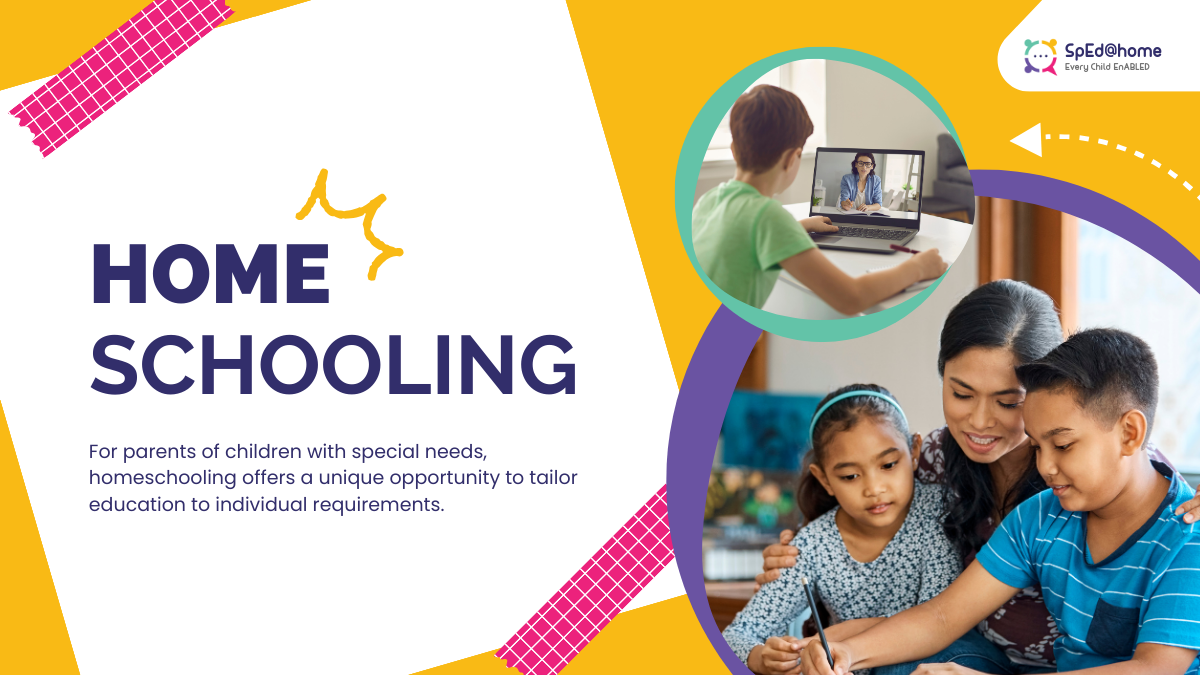Homeschooling has become an increasingly popular choice for families seeking a personalized and supportive educational environment. For parents of children with special needs, homeschooling offers a unique opportunity to tailor education to individual requirements. In this blog post, we will explore the benefits of homeschooling for children with special needs, providing valuable insights and tips for a successful homeschooling journey.
Understanding Special Needs
Before delving into the advantages of homeschooling, it’s crucial to recognize the diverse spectrum of special needs. These may include learning disabilities, developmental delays, attention disorders, and more. Homeschooling can be adapted to accommodate various learning styles and challenges, ensuring a customized educational experience.
The Benefits of Homeschooling for Children with Special Needs:
Personalized Learning Plans
– Homeschooling allows parents to create personalized learning plans tailored to their child’s unique strengths and weaknesses.
– Individualized attention fosters a deeper understanding of academic subjects and helps address specific learning challenges.
Flexible Schedules
– Children with special needs may benefit from a flexible schedule that accommodates their learning pace and preferences.
– Homeschooling allows for breaks, varied activities, and adjustments based on the child’s optimal learning times.
Adaptability to Learning Styles
– Traditional classrooms may not always cater to diverse learning styles. Homeschooling empowers parents to identify and incorporate the best-suited teaching methods.
– Multi-sensory approaches, visual aids, and hands-on activities can enhance the learning experience.
Reduced Distractions
– Children with special needs may struggle with distractions in traditional classrooms. Homeschooling provides a focused and controlled environment.
– Tailoring the learning space to minimize sensory overload can contribute to a more conducive learning environment.
Emphasis on Social Skills
– Contrary to common misconceptions, homeschooling offers ample opportunities for socialization.
– Parents can organize social activities, playdates, and community events to promote social skills development in a comfortable and supportive setting.
Tips for Successful Homeschooling
Set Realistic Goals
– Establish achievable short-term and long-term goals based on your child’s abilities and progress.
– Celebrate accomplishments, no matter how small, to boost your child’s confidence and motivation.
Utilize Resources
– Leverage online resources, support groups, and educational materials specifically designed for children with special needs.
– Incorporate technology to enhance learning, including educational apps and interactive programs.
Regular Assessments
– Implement regular assessments to gauge your child’s progress and identify areas that may need additional focus.
– Adjust your teaching methods and curriculum as needed to meet your child’s evolving needs.
Stay Connected
– Join homeschooling communities and support groups where you can share experiences and gather valuable insights.
– Collaborate with specialists, therapists, and educators to ensure a holistic approach to your child’s education.
Homeschooling for children with special needs is a transformative journey that empowers parents to provide a tailored, supportive, and adaptable learning environment. By understanding the unique needs of your child and leveraging the benefits of homeschooling, you can unlock their full potential and nurture a love for learning. Embrace the flexibility, individualization, and opportunities for socialization that homeschooling offers, creating an enriching educational experience for your child with special needs.












